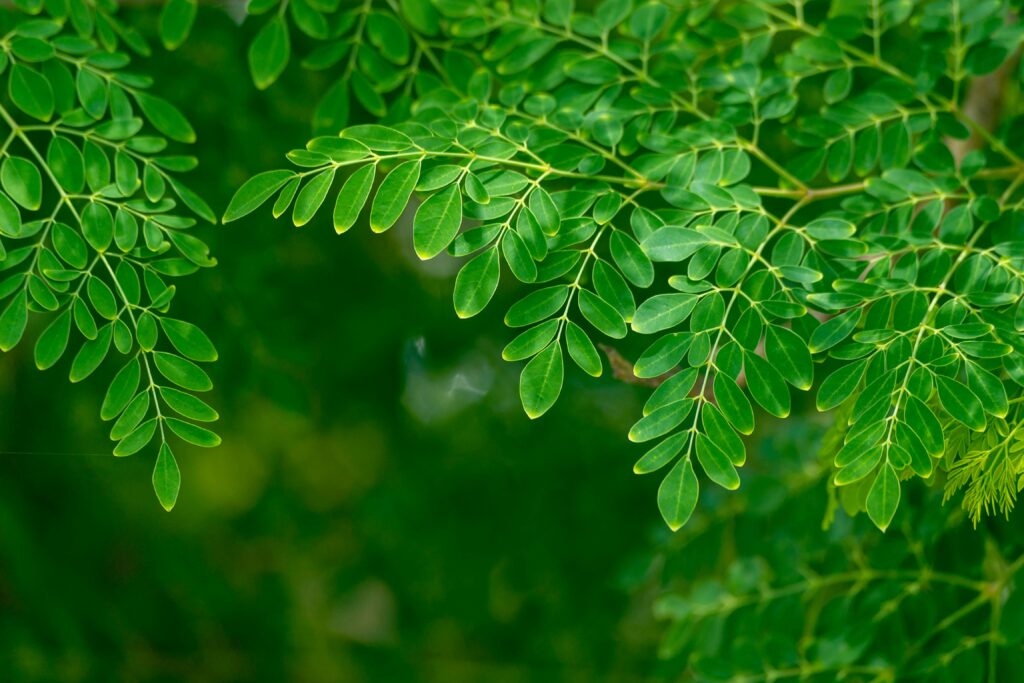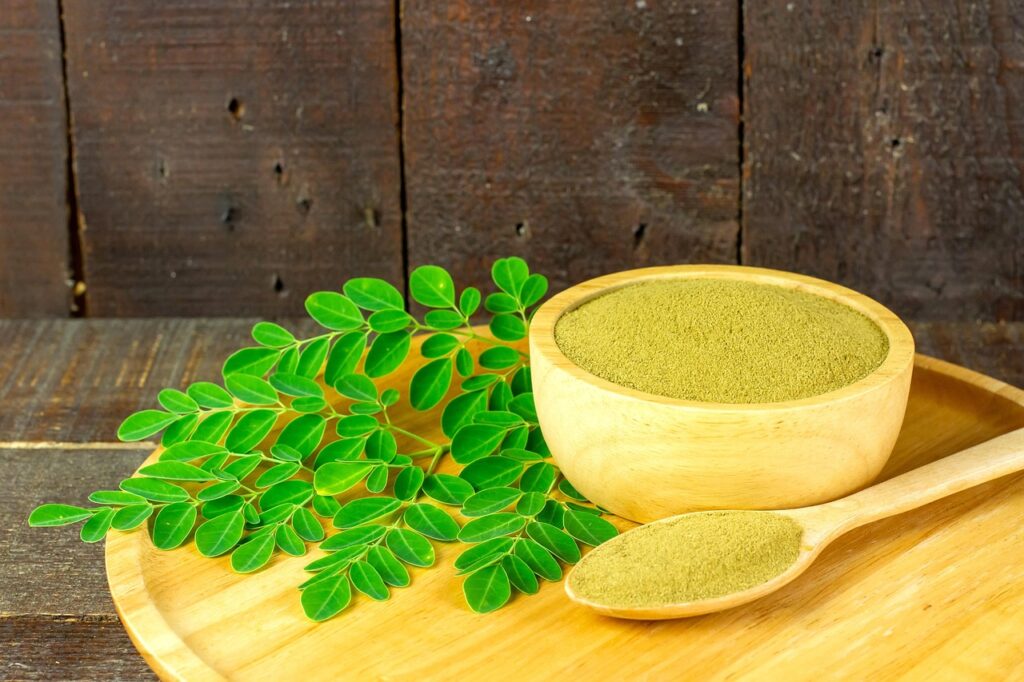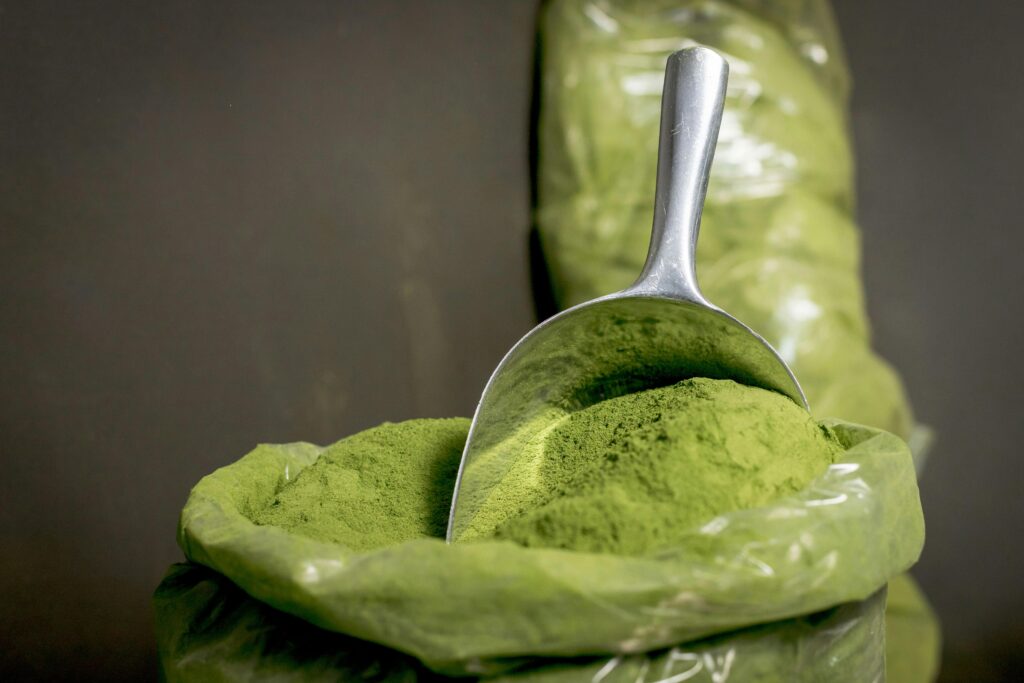Moringa tea, made from the leaves of the Moringa oleifera tree, is gaining popularity as one of the most nutrient-dense herbal infusions in the world. Often referred to as the “miracle tree” or “drumstick tree”, moringa has been used for centuries in traditional medicine systems across Asia and Africa. Today, it’s being embraced globally as a natural drink packed with antioxidants, vitamins, and minerals that may support overall health.
In this article, we’ll dive deep into the health benefits of moringa tea, its traditional uses, how to prepare it, potential side effects, and why adding it to your daily wellness routine might be a powerful choice.

What is Moringa Tea?
Moringa tea is a caffeine-free herbal infusion made by steeping dried moringa leaves in hot water. The Moringa oleifera tree is native to parts of India, Nepal, and Africa, but it’s now cultivated worldwide due to its extraordinary nutritional profile.
Moringa leaves contain:
- Vitamins A, C, and E
- Calcium, potassium, and iron
- Antioxidants like quercetin and chlorogenic acid
- Essential amino acids
Unlike green or black tea, moringa tea has a mild, earthy flavor with a slightly grassy undertone. It’s often enjoyed plain, or blended with lemon, ginger, or honey for added taste and benefits.
Key Health Benefits of Moringa Tea
1. Rich in Antioxidants
Moringa leaves are abundant in antioxidants such as quercetin, polyphenols, and chlorogenic acid. These compounds help neutralize free radicals, protecting the body from oxidative stress and reducing the risk of chronic conditions like heart disease and premature aging.
2. Supports Healthy Blood Sugar Levels
Several studies suggest that moringa may help lower blood sugar levels, making moringa tea a potential ally for individuals with prediabetes or type 2 diabetes. The presence of chlorogenic acid and isothiocyanates contributes to this effect.

3. Anti-Inflammatory Properties
Chronic inflammation is linked to many health issues, including arthritis, diabetes, and cardiovascular disease. Moringa tea contains bioactive compounds that exhibit strong anti-inflammatory effects, which may support joint health and overall wellness.
4. Promotes Heart Health
The high levels of potassium and antioxidants in moringa tea may contribute to better heart health by:
- Reducing cholesterol levels
- Helping regulate blood pressure
- Supporting healthy blood circulation
5. Boosts Energy Naturally
Unlike caffeinated drinks that can cause energy crashes, moringa tea provides a natural energy lift thanks to its vitamins, minerals, and amino acids. It helps combat fatigue and enhances vitality without overstimulating the nervous system.
6. Supports Brain Function
Moringa leaves contain compounds that may support cognitive health. Antioxidants and neuro-enhancing properties could help improve memory, focus, and mental clarity, making moringa tea a great addition to your daily routine.

7. Enhances Skin and Hair Health
Rich in vitamins A and E, moringa tea supports skin rejuvenation and hair strength. Antioxidants protect against free radical damage, which contributes to aging, while vitamin A promotes collagen production for healthy skin.
8. Aids Digestion
Moringa tea has mild laxative properties and may help improve digestion. Its high fiber content supports gut health, while antibacterial properties may help keep harmful microbes in check.
Moringa Tea in Traditional Medicine
For centuries, moringa has been used in Ayurvedic medicine to treat over 300 conditions. In Africa and Asia, the leaves, seeds, and pods have been incorporated into diets and healing practices for:
- Improving nutrition in malnourished populations
- Supporting lactation in new mothers
- Reducing inflammation and fever
- Managing high blood pressure
This long history of use underscores why moringa is still called the “tree of life” in many cultures.
How to Prepare Moringa Tea
Ingredients:
- 1–2 teaspoons of dried moringa leaves (or 1 tea bag)
- 1 cup of hot water (not boiling, about 80–90°C / 176–194°F)
- Optional: honey, lemon, or ginger
Instructions:
- Add moringa leaves or tea bag into a cup.
- Pour hot water and let it steep for 5–7 minutes.
- Strain if needed.
- Sweeten with honey or add lemon for extra flavor.
👉 Drinking 1–2 cups per day is generally considered safe and effective.

Potential Side Effects and Precautions
While moringa tea is safe for most people, some precautions should be noted:
- Pregnancy and breastfeeding: Avoid excessive consumption as moringa may affect uterine contractions.
- Medication interactions: It may interact with medications for diabetes, high blood pressure, or thyroid conditions. Consult your doctor before use.
- Digestive sensitivity: Large amounts may cause mild diarrhea or stomach upset.
Moderation is key: stick to 1–2 cups daily unless otherwise advised by a healthcare professional.
FAQ About Moringa Tea
1. Can I drink moringa tea every day?
Yes, moderate daily consumption (1–2 cups) is considered safe and may support long-term health.
2. Does moringa tea contain caffeine?
No, moringa tea is naturally caffeine-free, making it a great choice for evenings or for people sensitive to caffeine.
3. What does moringa tea taste like?
It has a mild, earthy, and slightly grassy taste. Many people enhance the flavor with lemon or honey.
4. Can moringa tea help with weight loss?
While not a magic solution, moringa tea may support weight management by boosting metabolism, balancing blood sugar, and providing a nutrient-dense, low-calorie beverage.
5. Is moringa tea safe during pregnancy?
Pregnant women should avoid moringa in large amounts, especially extracts, due to possible uterine effects. Always consult a doctor before use.
Helpful Links for Further Reading
Here are two reliable external resources to learn more about moringa:
- Healthline – Moringa Benefits, Side Effects, and Uses
- National Institutes of Health (NIH) – Moringa Oleifera Review
Disclaimer
This article is for informational purposes only and is not intended to replace professional medical advice, diagnosis, or treatment. Always consult your healthcare provider before making any changes to your diet, lifestyle, or supplement routine.

